Let's Talk 2e! Virtual Conference for Parents, Educators, and Clinicians
Merging School and Home: Teaching and Loving 2e
12 Expert Sessions Available Immediately
$120 $127
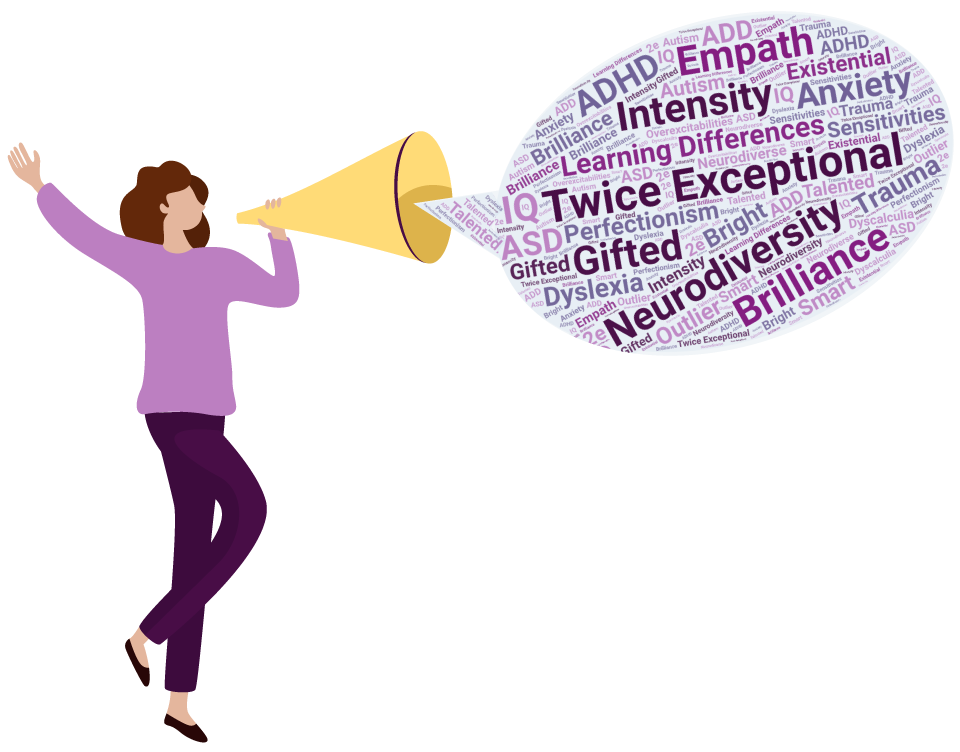
About this conference
Parents, educators, and clinicians, join us to learn all about reaching and teaching 2e learners (gifted with a learning difference). Twelve renowned experts and thought leaders discuss topics from emotion regulation, social thinking, and trauma to learning styles, classroom regulation, and teaching strategies. Participants learn how to use research-based tools for their home, classroom or clinical office. Contact hours are available through the University of Connecticut. Credits from the Maryland Department of Education are available for Maryland educators.
- Opening Keynote: Understanding and Addressing Emotion Regulation in 2e Children
Julie Skolnick, M.A., J.D. - Gifted Physiology: How OE’s and Gifted Differences are Better Understood by Taking a Whole Body Approach
Joanna Haase, Ph.D., MFT - Finding Balance: Teaching 2e Students to be Self-Regulated
Dr. Richard M. Cash, Ed.D. - Understanding and Managing Asynchronous Development
Paul Beljan, Psy.D., ABPdN, ABN - Supporting the Success of Culturally Diverse 2E Students
Renae D. Mayes, PhD, NCC - Using Visual Metaphor to Teach 2e Learners
Don Ambrose, PhD - Creating a Secure World for 2e Kids
Deborah Reber, M.A. - Non-Linear Thinkers in a Linear World
Josh Shaine - Gifted at Work: Different Profiles, Different Challenges
Femke Hovinga, M.A. - Uncovering the Social Mind of Tweens & Teens
Maria Johnson, M.A. CCC-SLP - Looking at 2e Through a Developmental Trauma Lens
Greg Burnham, M.S., LMFT - Beyond Classification
LeDerick R. Horne
Get immediate access to the entire conference now!
Meet our experts & read about their presentations.
Learn how to reach and teach twice-exceptional children from these expert sessions.
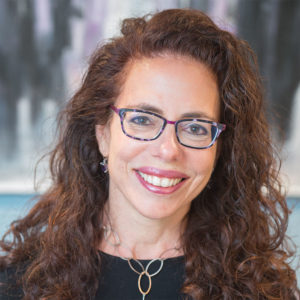
Julie Skolnick, M.A., J.D.
Opening Keynote: Understanding and Addressing Emotion Regulation in 2e Children
Emotion regulation is often a challenge for twice exceptional children. Grappling with intensities (overexcitabilities), a strong sense of justice, frequently challenged with output and frustrated by a lack of social nuance, our 2e children can act out in ways that seem out of sync for what is frustrating them at a particular moment. It is imperative to understand what lies behind behavior and to consider that seemingly severe responses may be triggered by environments where they feel repeatedly misunderstood.
Before we can help our 2e children “manage” their emotions, we must work with them on the process of cognitive reappraisal and loving themselves. In order to help them “control” their emotions, we must first hold their emotions with them, let go of our impulse to solve problems or discipline behavior. Feeling understood and having feelings honored will allow our 2e children to accept help in recognizing cognitive distortions, crafting appropriate ways of expressing feelings, and taking risks in trusting peers and adults around them. Once we gain their trust, we can set up expectations and allow natural consequences to occur.
Julie Skolnick, M.A., J.D., Founder of With Understanding Comes Calm, LLC, passionately guides parents of gifted and distractible children, mentors 2e adults, trains educators and advises professionals on how to bring out the best and raise self-esteem in their 2e students and clients.
Julie serves as Secretary to the Maryland Superintendent’s Gifted and Talented Advisory Council, is the Maryland liaison for Supporting the Emotional Needs of the Gifted (SENG), is a Committee member for the National Association for Gifted Children (NAGC) and serves as an advisor to “The G Word” feature documentary currently in production.
Julie produces Let’s Talk 2e! virtual conferences, hosts the Let’s Talk 2e! Membership Community, publishes “Gifted & Distractible” newsletter and a monthly blog.
A frequent speaker and prolific writer, Julie is also the mother of three twice exceptional children who keep her on her toes and uproariously laughing.
Subscribe to “Gifted & Distractible” monthly newsletter at www.WithUnderstandingComesCalm.com. Follow Julie on social media: Facebook.com/WithUnderstandingComesCalm, Instagram: @LetsTalk2e, Twitter: @JulieSkolnick, LinkedIn: Julie Rosenbaum Skolnick, and YouTube: Let’s Talk 2e

Joanna Haase, Ph.D., MFT
Gifted Physiology: How OE’s and Gifted Differences are Better Understood by Taking a Whole Body Approach
Historically, research in giftedness, psychology, neurology intelligence, and every other area of the body has been done without much, if any, crossover between the disciplines. When education, social, and environmental factors are layered in, it becomes even less likely that the disciplines will cross-reference. Like the parable of the blind men and the elephant, we are unable to understand the physiology of giftedness accurately unless we integrate findings from different disciplines and look at the entire picture, rather than only one or two small areas. This talk will look at the gifted experience, including OE’s, psycho-social issues, and other attributes of giftedness, and tie them to physiological research and theories that better explain the gifted experience. Gifted people are wired differently; when we look at the big picture, it all starts to make a lot of sense!
Joanna Haase, Ph.D., MFT is a private practice psychotherapist whose specialty is working with the gifted population. As a mother of two 2e children and a therapist who works with 100’s of gifted individuals and families, Dr. Haase is passionate about creating a whole person approach to understanding and treating this population. Dr. Haase co-founded Gifted Research and Outreach, a non-profit organization promoting a comprehensive and accurate understanding of giftedness through research and outreach. A frequent presenter at local, state, and national conferences, Dr. Haase’s areas of expertise include, giftedness, anxiety, depression, and eating disorders in highly and profoundly gifted individuals.
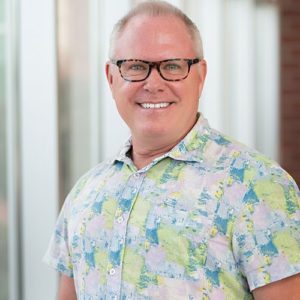
Dr. Richard M. Cash, Ed.D.
Finding Balance: Teaching 2e Students to be Self-Regulated
As parents and educators, we know what we want for our students. We want them to seek out challenges, ask for help, resist distraction, and see mistakes as chances to try again. In other words, we want kids to be self-regulated learners. Self-regulation for learning (SRL) is the ability to effectively balance the ABCs of Affect (how you feel), Behaviors (what you do), and Cognition (how to think) to pursue worthy academic goals. For 2e students, they may feel “out-of-balance” when they know they have the cognitive abilities to do what is being asked but may not be able to manage the behaviors or skills required to reach the goal, thus causing their self-beliefs to drop. Teaching students to balance these three elements builds motivation, resilience, and college and career readiness. In this session, learn doable, evidence-based practices to help 2e students engage in learning, build confidence, and reflect on their learning. Discover how home and school can work together to assist students in gaining greater social/emotional well-being, developing scholarly behaviors, and acquiring valuable thinking tools to be successful in school and beyond.
Dr. Richard M. Cash is an award-winning educator and who has worked in the field of education for more than 30 years. His range of experience includes teaching, curriculum coordination, and program administration. Currently, he is an internationally recognized education consultant (www.nrich.consulting). His consulting work has taken him throughout the United States, as well as into Canada, The Czech Republic, China, Cyprus, England, Indonesia, Kuwait, Mexico, Poland, Qatar, Saudi Arabia, Singapore, Spain, South Korea, and Turkey.
Richard received his doctorate in Educational Leadership and a Master’s Degree in Curriculum and Instruction from the University of St. Thomas in Minneapolis, MN. Along with his Bachelor’s degree in Education from the University of Minnesota, Minneapolis, Richard holds a Bachelor’s degree in Theater from the University of Wisconsin, Eau Claire. For over 10 years, he co-directed a children’s theater company in Minnesota, and co-authored 4 award winning children’s plays. He was recipient of the National Association for Gifted Children’s Early Leader Award (2011), recognizing his leadership in programing for gifted children. Richard was also named the “Friend of the Gifted, 2016” by the Minnesota Educators of the Gifted and Talented.
His areas of expertise are educational programming, rigorous and challenging curriculum design, differentiated instruction, 21st century skills, brain-compatible classrooms, gifted & talented education, and self-regulated learning. Dr. Cash authored the books Advancing Differentiation: Thinking and Learning for the 21st Century, (2011, Revision & Update 2017), a finalist for the Association for Educational Publishers Distinguished Achievement Award (2011) and winner of The Legacy Book® Award for Outstanding Educators Publication (2017); Differentiation for Gifted Learners: Going Beyond the Basics (2014) (co-author Diane Heacox), winner of The Legacy Book® Award for Outstanding Educators Publication (2014); and Self-Regulation in the Classroom: Helping Students Learn How to Learn (2016). All books are published by Free Spirit Publishing, Inc. (www.freespirit.com).
Richard lives in Minneapolis, Minnesota, USA.
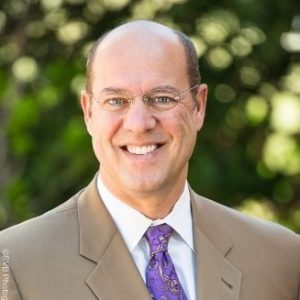
Paul Beljan,Psy.D., ABPdN, ABN
Understanding and Managing Asynchronous Development
Gifted children displaying asynchronous development (AD) are at risk for misdiagnosis. AD is best understood in the context of executive functioning (EF). The presenter will review the neuropsychological basics of AD and EF, how they cause some children to express affective dysregulation and meltdowns. AD may not respond to traditional forms of behavior management and the presenter will teach a highly successful intervention approach that is based in the neuropsychology of AD and executive functioning to manage, not fix, the problem.
This session focuses on the brain basics of executive functioning and asynchronous development (AD). Many features of AD are indistinguishable from executive function deficit, often termed ADHD, but the origin of each issue is very different. Unless the origins of these issues are understood, the gifted child is at high risk for misdiagnosis and subsequent inappropriate intervention. A negative outcome of AD can be expressed as affective dysregulation (emotional meltdowns) and tantrum behavior. Gifted children who display AD behaviors may not respond to traditional forms of behavior management.
The presenter will also teach an intervention approach that is based in the neuropsychology of AD and executive functioning. The intervention equips the child with appropriate decision making by maintaining cognitive control over sub-cortically produced affective stimulus. Behavioral intervention concepts include: Priming, Previewing, Pre-empting, Disengagement, and Re-engagement. Practical explanations for imposing structure, consistency, and routine also will be discussed.
Dr. Paul Beljan is a Scottsdale, Arizona pediatric neuropsychologist in private practice. Dr. Beljan served at the Governor’s pleasure on the Arizona Board of Psychological Examiners. He completed two Post-Doctoral Fellowship programs specializing in Pediatric (Medical) Psychology and Pediatric Neuropsychology. He holds child and adult diplomate certifications with the American Board of Pediatric Neuropsychology (ABPdN) and the American Board of Professional Neuropsychology (ABN). Dr. Beljan is a past president of the American Board of Pediatric Neuropsychology (ABPdN). In 2016, Dr. Beljan completed a post-doctoral master’s degree in psychopharmachology from New Mexico State University. Dr. Beljan’s professional focus is on Gifted Intelligence, Alcohol/Drug Related Neurodevelopmental Deficit (A/DRND), Learning Disorders, Traumatic Brain Injury, Physical and Emotional Trauma, and Attention and Executive Functioning Deficit and associated interventions. His past hospital based work in pediatric psychology and pediatric neuropsychology included assessment, pain management and trauma recovery with children suffering from burns, cancer, sickle cell anemia, juvenile rheumatoid arthritis, lupus, cerebral palsy, cleft palate, Alcohol/Drug Related Neurodevelopmental Deficit (A/DRND), traumatic brain injury, attention deficit hyperactivity disorder, and learning disorders. He also evaluated hundreds of infants in neonatal clinics.
Dr. Beljan is an expert in evaluating and understanding gifted children and their common misdiagnoses. He is a co-author of the book: Misdiagnosis and Dual Diagnosis of Gifted Children and Adults and Large Scale Brain Systems and Neuropsychological Assessment. The Misdiagnosis book is a Legacy Book Award Winner, ForeWord Magazine Book of the Year Award Winner, and Arizona Book Award Winner. Dr. Beljan also has authored several chapters and articles in various publications.
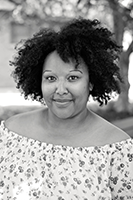
Renae D. Mayes, PhD, NCC
Supporting the Success of Culturally Diverse 2E Students
Imagine being a very bright student who may frequently tune out in the classroom and then sometimes be very outspoken and respond to instruction by giving very detailed answers. Now imagine that this same student has been denigrated by teachers and overlooked for his brilliance and only noticed for his errant behaviors. Imagine now that this student is Black male attending a Title I school where teachers focus mainly on teaching students who have difficulty with instruction. Tuning out may be a coping mechanism for this student learned over the years so he doesn’t get into trouble. But it may also be an indication of a special need that has been overlooked. Twice exceptional students who may be from racially diverse groups are subject to misdiagnosis, being targeted for behavior problems, and are underserved in gifted programs nationwide. This session will focus on the unique challenges of culturally diverse 2E students, issues and recommendations for teachers and parents.
Renae D. Mayes, PhD, NCC, is the Director of the MA Program in School Counseling and an Associate Professor of Educational Psychology and School Counseling at Ball State University. Her research focuses on the intersection of gifted education and special education for students of color in urban environments. Additionally, Mayes focuses on comprehensive school counseling models and interventions that support the holistic development and success of historically underserved student populations.
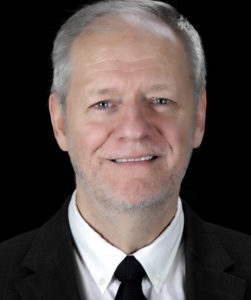
Don Ambrose, PhD
Using Visual Metaphor to Teach 2e Learners
Many of the greatest scientists and inventors used visual-metaphorical thought processes to come up with their groundbreaking ideas. Producing visual metaphors is a creative thinking strategy that helps 2e students discover and strengthen their hidden intellectual abilities. 2e students who learn to create and interpret visual metaphors will strengthen the already powerful artistic dimensions of their minds while making it much easier to overcome their academic difficulties. In this session, we’ll look at how 2e learners can use visual metaphor to capture and synthesize large amounts of academic content while committing it to long-term memory. We’ll contemplate the step-by-step process for creating visual metaphors while looking at an array of examples of powerful metaphorical images that illustrate the nature of creative intelligence.
Don Ambrose, PhD, is professor of graduate education at Rider University in Lawrenceville, New Jersey, and editor of the Roeper Review. He serves on the editorial boards of most of the major journals in the field of gifted education and for several book series. He has initiated and led numerous interdisciplinary scholarly projects involving eminent researchers and theorists from gifted education, general education, creativity studies, cognitive science, ethical philosophy, psychology, political science, economics, law, history, sociology, theoretical physics, and critical thinking. Some of his recent books include Conceptions of Giftedness (forthcoming, with Robert J. Sternberg); Creative Intelligence in the 21st Century: Grappling with Enormous Problems and Huge Opportunities (with Robert J. Sternberg); Giftedness and Talent in the 21st Century: Adapting to the Turbulence of Globalization (with Robert J. Sternberg); How Dogmatic Beliefs Harm Creativity and Higher-Level Thinking (with Robert J. Sternberg); Confronting Dogmatism in Gifted Education (with Robert J. Sternberg and Bharath Sriraman); Expanding Visions of Creative Intelligence: An Interdisciplinary Exploration; Morality, Ethics, and Gifted Minds (with Tracy L. Cross); The Roeper School: A Model for Holistic Development of High Ability (with Bharath Sriraman and Tracy L. Cross); and A Critique of Creativity and Complexity: Deconstructing Clichés (with Bharath Sriraman and Kathleen Pierce). He also invents new creative and critical thinking strategies based on concepts discovered in multiple academic disciplines and professional fields. Don has received international, national, and regional awards for distinguished scholarship from the NAGC; the NJAGC; the ICIE; the Routledge/Taylor & Francis Educational Expert Panel; and the American Creativity Association; among others. He has done invited keynote presentations throughout the world.

Deborah Reber, M.A.
Creating a Secure World for 2e Kids
Many twice-exceptional children experience stress and anxiety as a regular part of their day, the result of things like sensory information overload, being misunderstood by teachers and peers, getting feedback from others that there is something wrong with how they think or who they inherently are. These children are in an ongoing state of protecting themselves from the emotional and physical input they’re flooded with by living in an intense world. It’s critical that we address this, because when they’re in a stress response, children struggle to regulate emotions, aren’t effective learners, and are unable to take the kind of risks necessary for healthy growth. In this talk, we’ll look at how we can create a secure world for 2e kids so they are best positioned and available for social/emotional learning, personal growth and self-awareness and, ultimately, developing the skills and tools they need to eventually launch.
Deborah Reber is a parenting activist, New York Times bestselling author, podcast host, and speaker who moved her career in a more personal direction in 2016 when she founded TiLT Parenting, a website, weekly podcast, and social media community for parents like her who are raising differently wired children. The TiLT Parenting Podcast has grown to be a top podcast in the parenting space, with more than 850,000 downloads. A regular contributor to Psychology Today and ADDitude Magazine, Debbie’s newest book is Differently Wired: Raising an Exceptional Child in a Conventional World (Workman Publishing, 2018). In November 2018, she spoke at TEDxAmsterdam, delivering a talk entitled Why the Future Will Be Differently Wired.
Prior to launching TiLT, Debbie spent more than fifteen years writing inspiring books for women and teens. Before embarking on her own path as a solopreneur, Debbie worked in TV and video production, producing documentaries and PSAs for CARE and UNICEF, working on Blue’s Clues for Nickelodeon in New York, and developing original series for Cartoon Network in Los Angeles. She has an MA in Media Studies from the New School for Social Research and a BA in Communications from Pennsylvania State University.
In December 2018, Debbie and her family relocated back to the NYC area after living in Amsterdam, the Netherlands for the past five years. She currently homeschools her 14-year-old twice-exceptional son.

Josh Shaine
Non-Linear Thinkers in a Linear World
People often speak about non-linear thinkers as if there were only two types of thinkers in the world: Linear and Non-linear. We will explore some of the various types of non-linear thinkers, and then dive into what their needs are, their strengths and weaknesses, and how to recognize and avoid common pitfalls. It seems that the further out the bell curve a person is, the more likely she or he is to be one of the on-linears – and that doesn’t even begin to account for the vast percentage of non-linear thinkers wo don’t deal well with the most common tests! So, if you are raising one, married to one, teaching one, or are one yourself, join us!
Josh Shaine has been working with gifted students of all ages for more than 35 years, including many years teaching, administrating, advising, and sometimes directing programs for 7th – 12th graders through MIT’s Educational Studies Program. He has taught at public, private, and alternative schools, as well as working with special needs students, either at home or institutionalized, for school districts in several states. He was the headmaster of a small 7th – 12th grade alternative school in Boston for gifted “disgruntled” students. In addition to teaching and consulting, Josh currently organizes the Beyond IQ conferences near Boston and serves on the board for Hoagies Gifted.
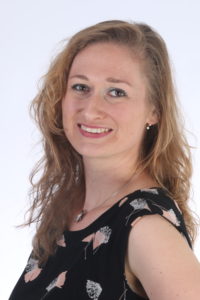
Femke Hovinga, M.A.
Gifted at Work: Different Profiles, Different Challenges
Giftedness comes in many ways, also on the workfloor. Two Dutch gifted experts saw the challenges gifted employees faced and decided to take action. Mid 2018 their recruitment agency for gifted adults started. Rather than looking at educational background and CV, they started looking for talent, skills and potential. During this session, Femke Hovinga will share more about work and giftedness from theoretical and practical perspectives. We will speak about the most heard preconceptions, challenges for gifted people at work and how to find the best suitable workplace for gifted adults. This session is suitable for gifted adults and those working with them.
Femke Hovinga is a gifted specialist from Zeist, The Netherlands. When she was a six-year-old struggling with the challenges of giftedness, Femke said she would ‘make the world a better place for the gifted, when she was a grown-up’. There’s no more denying: Femke is a grown-up now, so it was time to keep the promise! After getting degrees in journalism and business, Femke took a post-graduate course in gifted education and coaching. Ever since, Femke has been active in the field of gifted. She is currently the Executive Director for SENG in Europe, she runs a coaching practice for profoundly gifted youth and has a recruitment firm for gifted people who are looking for a job that suits them and their talents.
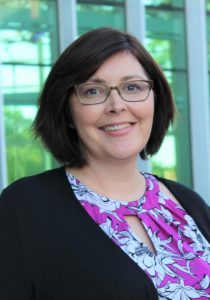
Maria Johnson, M.A. CCC-SLP
Uncovering the Social Mind of Tweens & Teens
What does it mean to be socially smart? Brain science in recent years has revealed much about how adolescence is a time of significant brain change, but how does that transformation impact social development, especially for asynchronous populations? In our current age of “academic overload”, it has become particularly important to be strategic in the ways we engage socially, with a keen eye to better understand how youth think and reason through life’s most challenging interpersonal situations. In this talk, Maria will discuss her latest research on social learning styles, and illuminate a specific profile, The Hypervigilant Social Mind, unique to twice-exceptional tweens and teens. She will offer parents and professionals an inside look into Socially Smart: A Wheel of Social Learning as well as actionable tips and tools to take into the home, classroom, or clinic to boost social brainpower!
Creating a collaborative environment that brings together practitioners from the field of education, cognition, and behavioral health drives Maria’s leadership as the director of Youth and Family Innovations through the University of Texas at Dallas’ Brain Performance Institute. With a strong foundation in research, business, and education, she is passionate about working closely with schools for students with learning differences, and is proud to offer access to virtual social learning programs to families from coast to coast. As a Speech Language Pathologist that has specialized in social cognition for the past 18 years, Maria thrives on giving children the knowledge and confidence they need to grow as strong social citizens. As a mom of a twice exceptional child for the past 13 years, she is an avid advocate for the educational rights of children for mental health supports, especially within the public school system. She is proud to serve as a key community resource in assisting clinicians, teachers, and families discover how to best support the social, emotional and cognitive development of the youth in their lives.

Greg Burnham, M.S., LMFT
Looking at 2e Through a Developmental Trauma Lens
In this session we will explore some of the practical ways that growing up 2e is a developmental trauma. It is something that we know instinctually as people but often do not give the appropriate attention to. We have the tendency to brush over the internal world and focus on the behavior that is either amazing or needs to change. This will allow us to then explore strategies for working from this lens. This will open us up to also exploring some of the protective factors we need to be aware of and potentially build in to the lives of 2e students and their families. We will also explore how the family is also potentially experiencing a trauma in the raising and living with a 2e student. Then what the family can do to acknowledge and work through their own traumatic experience in order to be more present to all members of the family. And lastly we will take a look at some of the pitfalls and problems with this lens and how to navigate them.
Greg has worked as a therapist for the last 20 years with adolescents in a variety of settings. He has worked as a primary therapist and as a clinical director in residential treatment, community mental health, and wilderness treatment. His current specialty is working with a neurodiverse population. He has the privilege of watching young people who have been in pain and are not able to navigate complex emotions in effective ways find a clear path to begin healing. He works with more severe acting out 2e individuals. They are the amazing students who can’t stay in even nontraditional settings due to their level of dysregulation and acting out/escape style ways of dealing with their inner turmoil.
Greg regularly speaks at conference on topics related to the 2e population. He feels driven to challenge the status quo and standard methods of intervening with young people. He also believes in the sharing of ideas in ways that everyone can relate to and understand. He finds the science fascinating and loves making that information practical.
He believes in living a life of emotional growth and physical challenge without sacrificing relaxation and enjoyment. He is fond of saying that ”it is a thousand times easier to be a therapist than to be a parent” and “if imperfect parenting caused the level of acting out to require wilderness therapy then… all children on the planet would require it.” His desire is that we don’t judge each other and that we don’t excuse our influence on our children either.
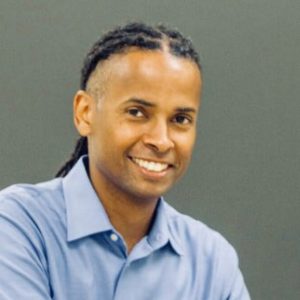
LeDerick R. Horne
Closing Keynote: Beyond Classification
LeDerick Horne, entrepreneur and performance poet with a learning disability who has worked as an advocate on the national, state, and local level, provides a unique perspective on our school system and issues related to creating a more equitable society for people with disabilities. In this informative and entertaining Closing Keynote, LeDerick provides strategies for increasing the academic performance, self-determination, and self-advocacy skills of students with and without disabilities. Get ready for an emotionally stirring talk filled with moving verses, funny stories, and empowering information that will prepare the audience to challenge stereotypes and support the needs of people with disabilities.
Diagnosed with a learning disability in the third grade, LeDerick Horne defies any and all labels. He’s a dynamic spoken-word poet. A tireless advocate for all people with disabilities. An inspiring motivational speaker. A bridge-builder between learners and leaders across the U.S. and around the world who serves as a role model for all races, genders, and generations.
The grandson of one of New Jersey’s most prominent civil rights leaders, LeDerick uses his gift for spoken-word poetry as the gateway to larger discussions on equal opportunity, pride, self-determination and hope for people with disabilities.
LeDerick served as the Founding Board Chair of Eye to Eye (eyetoeyenational.org), the only national nonprofit mentoring program for students labeled with LD/ADHD, and continues to serve on the board today. And he is on the advisory board for The National Resources for Access, Independence, Self-determination and Employment (RAISE) Technical Assistance Center (www.raisecenter.org).
In 2016, he and co-author Margo Vreeburg Izzo, PhD, The Ohio State University, released the book Empowering Students with Hidden Disabilities: A Path to Pride and Success — the definitive compendium on transition support for students with LD / ADHD and other hidden disabilities — published by Brookes Publishing Co.
The Exhibitor Hall
Gain full entrance to our Exhibitor Hall and find 2e and gifted resources arranged by category: Education, Clinicians, Enrichment, Consultants, and Associations.


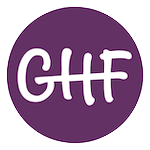
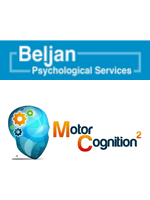




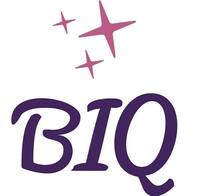
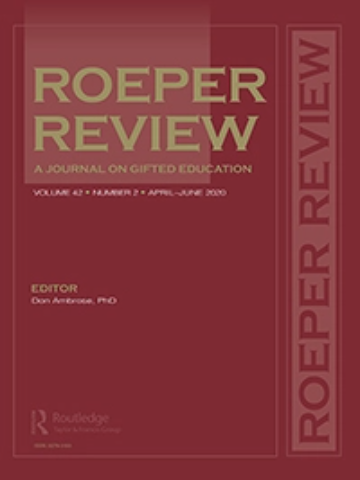
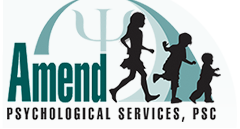

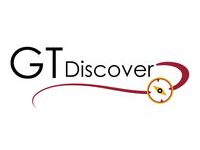
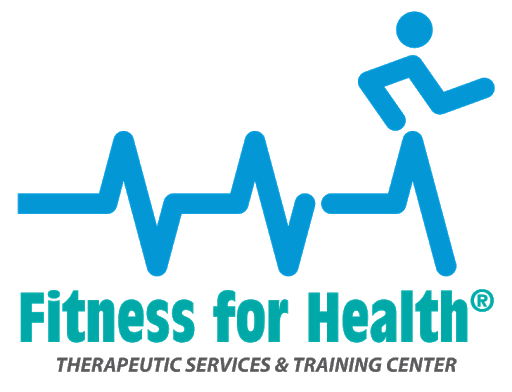
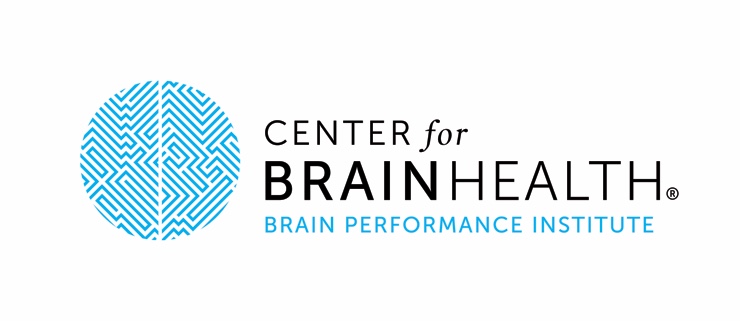

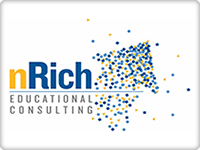
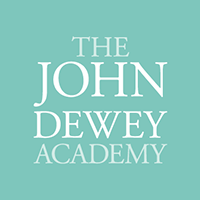

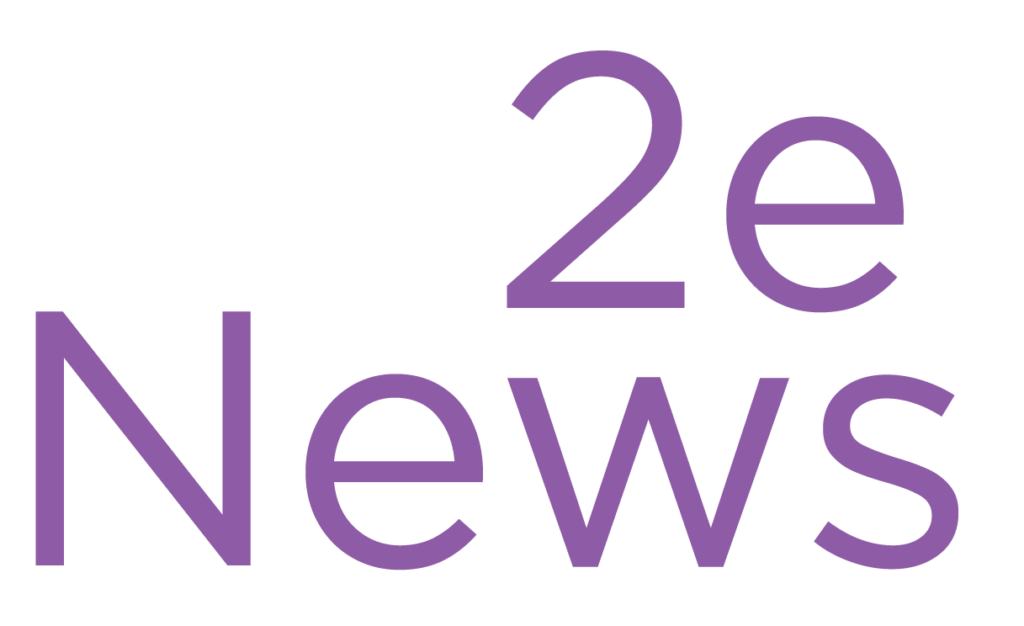
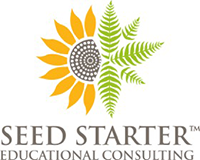
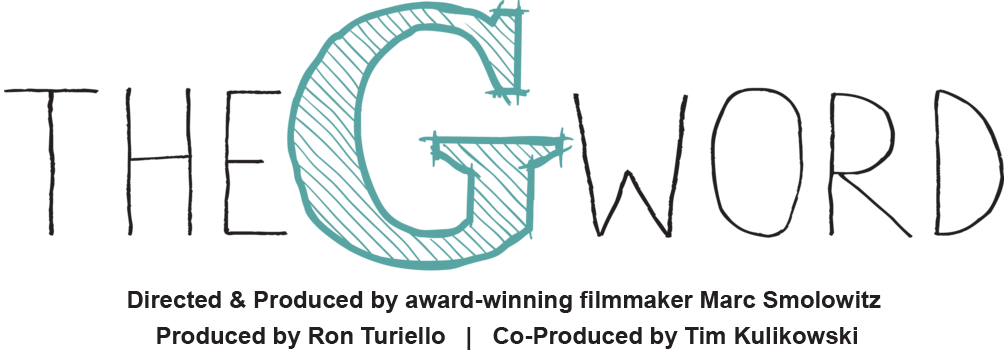
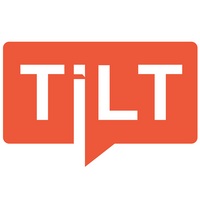
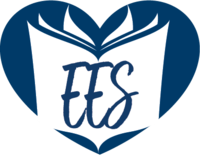




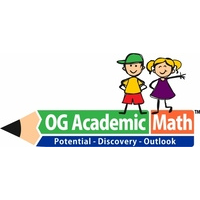
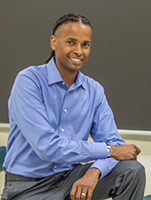

Get immediate access to the entire conference now.
By registering, you agree that your registration information may be shared with the sponsors of this offering (if any) to be used in providing newsletters, announcements or other online or offline materials of interest. You also agree that your information will be subject to the privacy policy (link) associated with Let’s Talk 2e!, With Understanding Comes Calm LLC, and that of sponsors. Participants are eligible to receive a Certificate documenting Contact Hours issued by the University of Connecticut (UCONN). It is the participant’s responsibility to determine if their home state/agency/professional association recognizes Contact Hours. Continuing Education Units (CEUs) are not offered by the University of Connecticut.